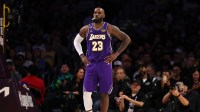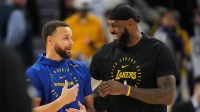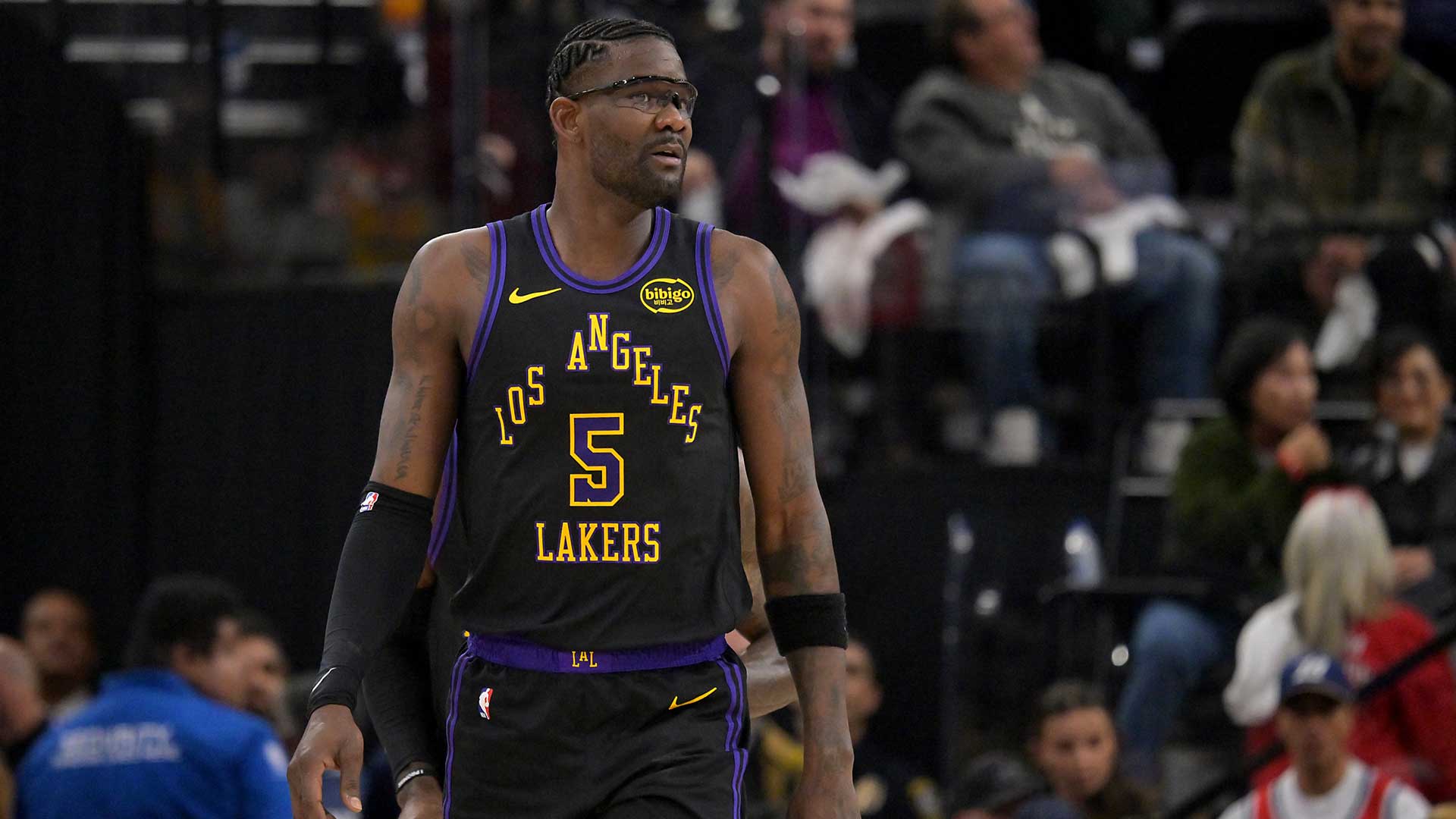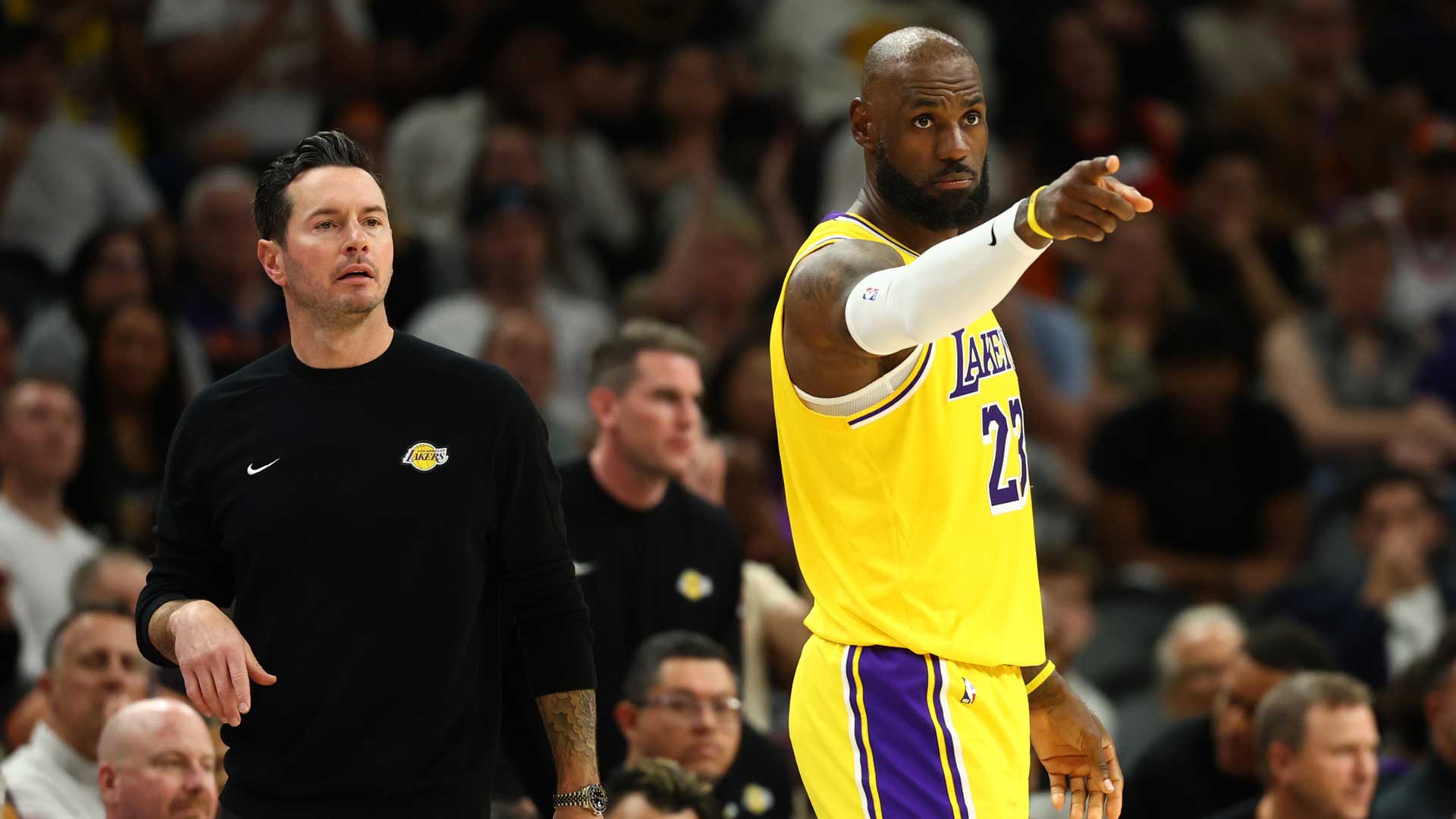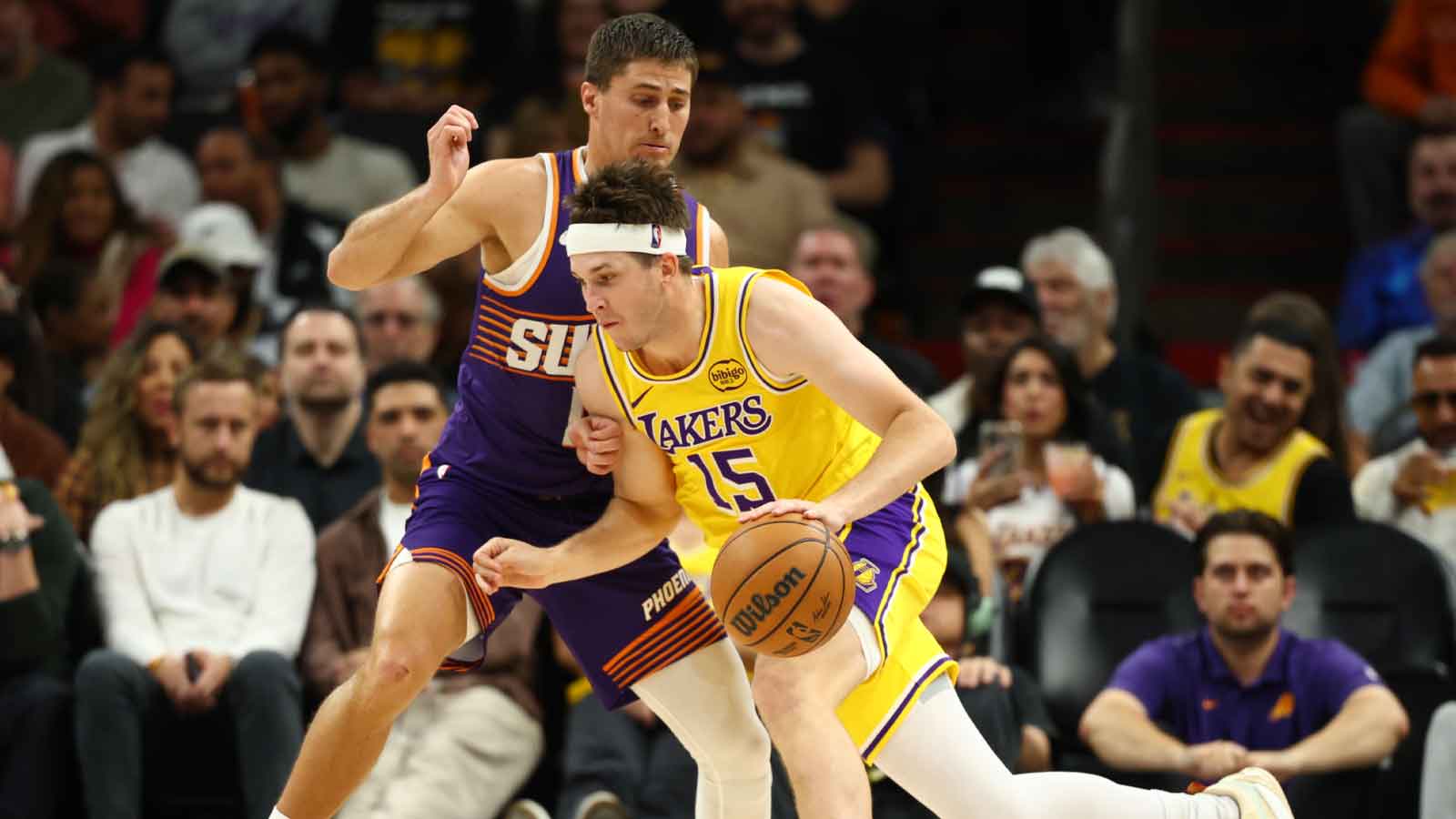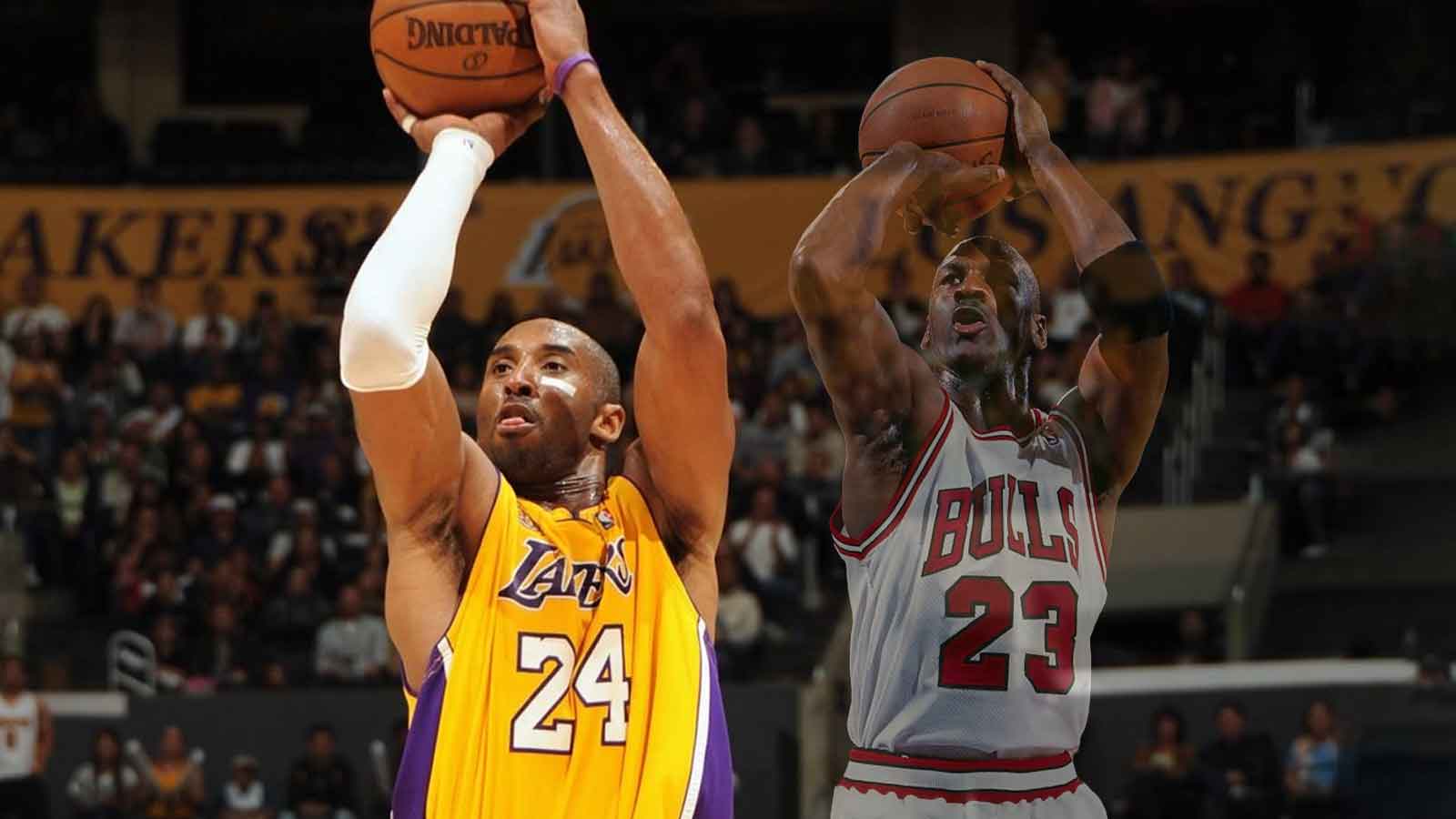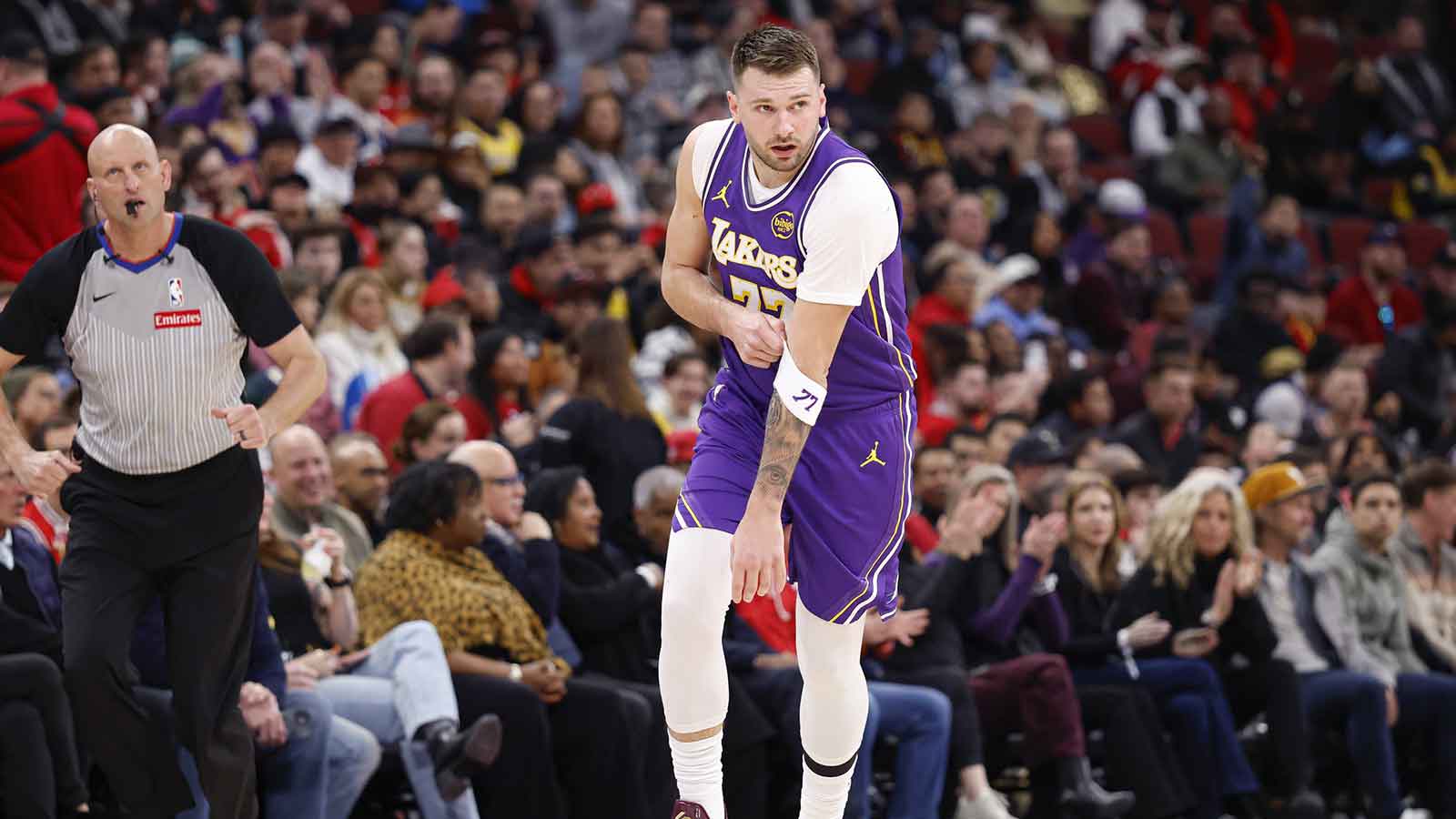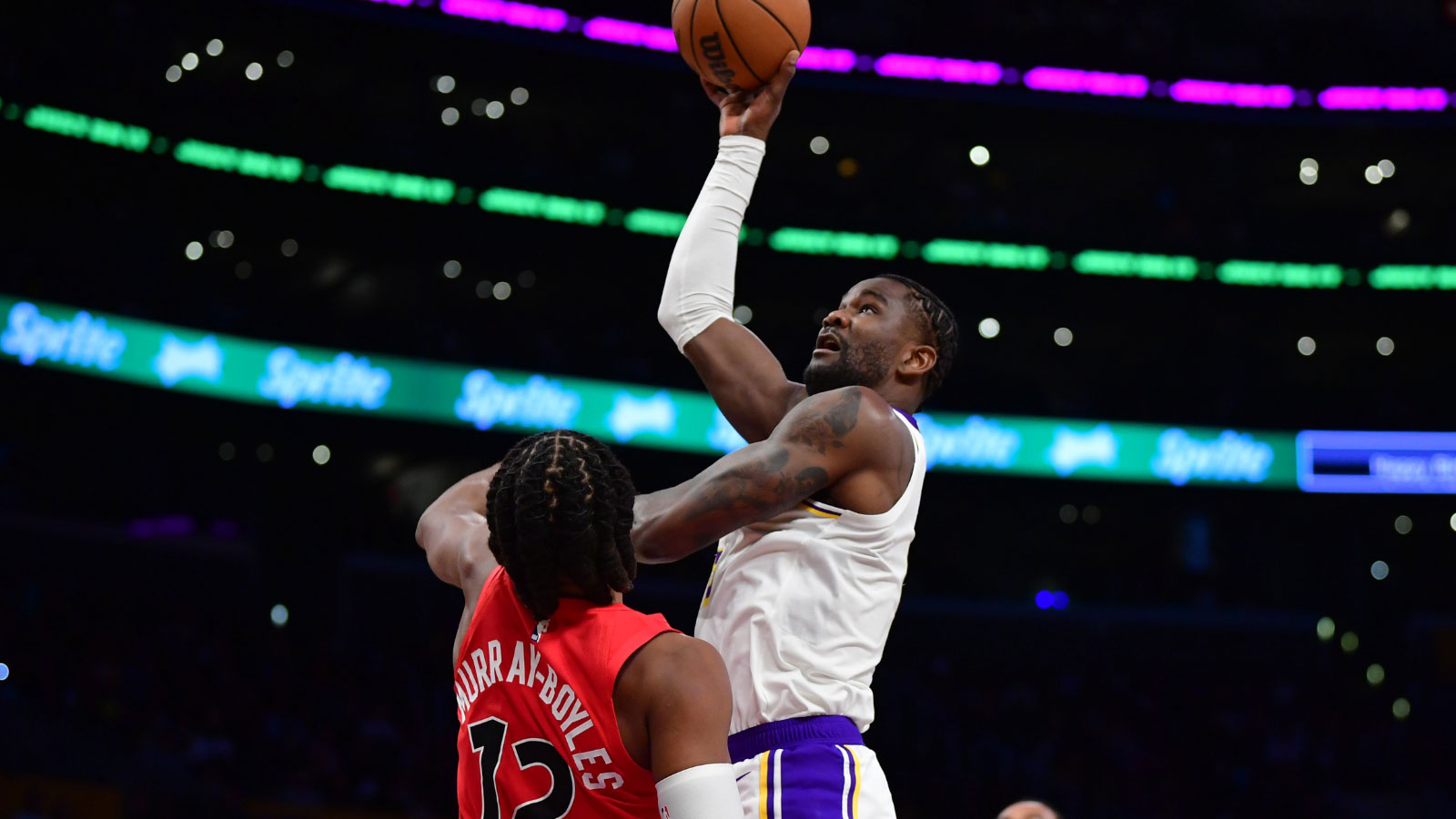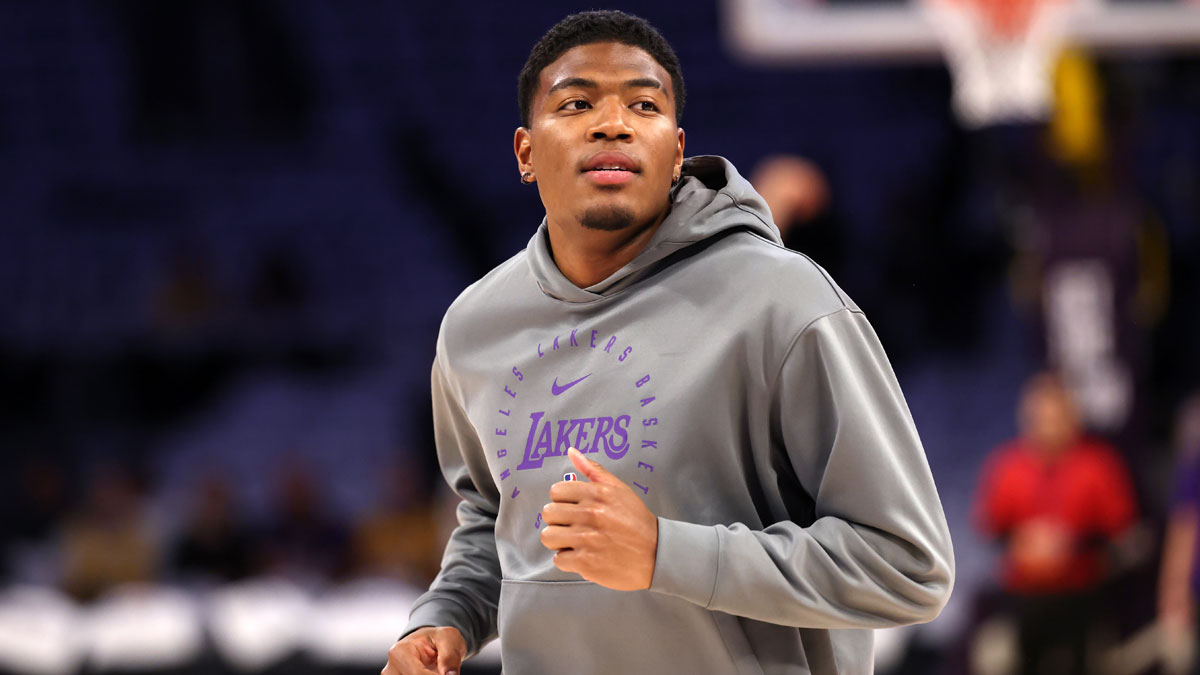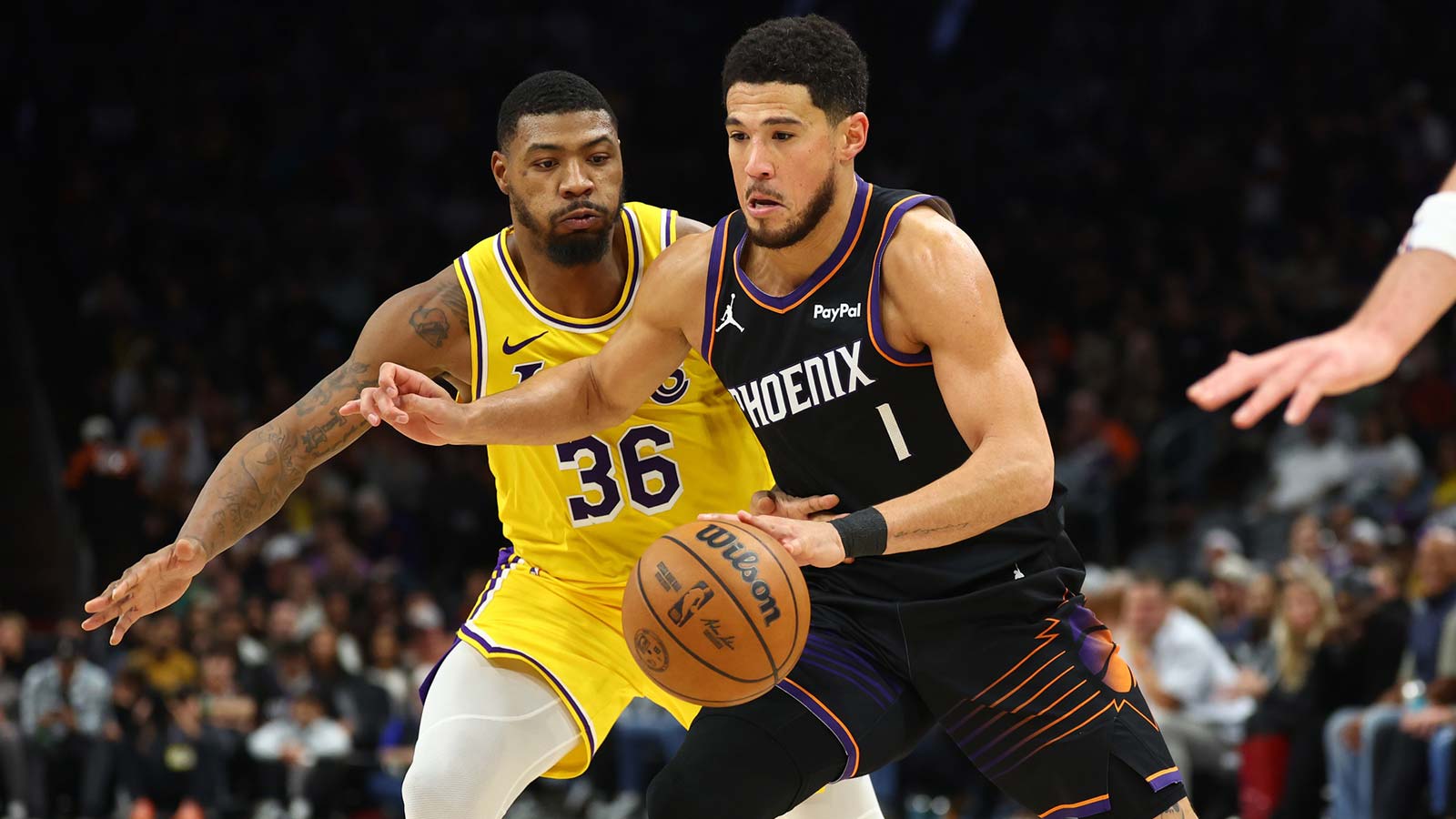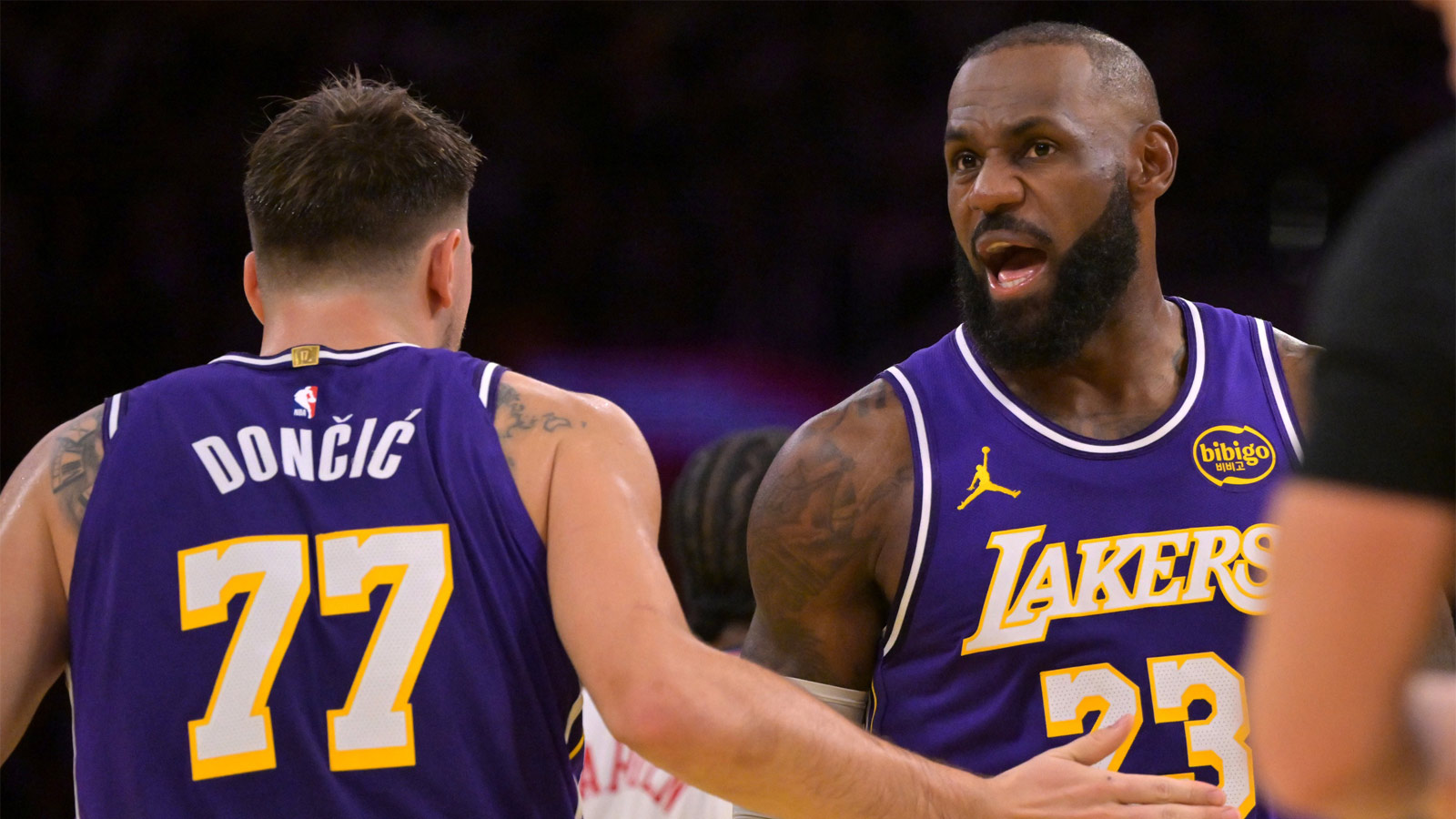With a renewed interest in revisiting the Kobe Bryant-Tim Duncan rivalry, Spurs and Lakers fans can be heard yelling about who the real GOAT of that generation was. It's time to look at some history, kids.
Prior to his Hall of Fame enshrinement if the Class of 2020, Tim Duncan reflected on his many battles with the late, great Kobe Bryant. The memory of the San Antonio Spurs legend of the Los Angeles Lakers icon is exactly what we imagined it to be: intense, competitive and full of respect.
Here's what Duncan said of Bryant, further highlighting the greatness of one of the best shooting guards to ever play the game:
“You always had to be at your best and bring your best from start to finish when your playing against [Kobe]."
Tim Duncan on facing Kobe Bryant 🙏🏽pic.twitter.com/hejuXlXFhw
— ClutchPoints (@ClutchPoints) May 15, 2021
With that said, we take a look at the rivalry of the two and how it all started.
Kobe Bryant and Tim Duncan's Arrival
With the 13th overall pick in the 1996 NBA Draft, the Charlotte Hornets selected Kobe Bryant, a 17-year-old shooting guard from Lower Merion High School. Then, Charlotte traded him to the Lakers in exchange for Vlade Divac.
Less than a month later, Shaquille O'Neal signed a free agent deal with the Lakers. He remained with the team for eight seasons and played an instrumental role in formulating Bryant's early years in the league.
As a rookie, Kobe Bryant only played 15.5 minutes per game. Tension with head coach Del Harris didn't boost Bryant's playing time. While he did make the NBA's All-Rookie 2nd Team, perennial All-Star and All-NBA selections were a few years away.
The following summer, the Spurs opened the 1997 NBA Draft by taking a four-year college player from Wake Forest named Tim Duncan. The Spurs paired Duncan with the aging David Robinson, forming a dominant frontcourt under second-year head coach, Gregg Popovich.
The 1997 season marked the emergence of a rising generation in the Western Conference. Bryant played 26 minutes per game and made his first All-Star appearance. As a rookie, Duncan played 39.1 minutes per game, won Rookie of the Year, and also made his first All-Star appearance.
The Utah Jazz ousted the Spurs 4-1 in the Conference Semifinals before sweeping the Lakers in the Western Conference Finals. Despite the disappointing end to the 1997 season, the Lakers and Spurs began a journey that saw them become staples of the NBA playoffs for nearly two decades.
Kobe Bryant-Tim Duncan Rivalry

Tim Duncan won a title first. In his second season, the Spurs flew through the 1999 playoffs, sweeping the Lakers in the Conference Semifinals. San Antonio defeated the New York Knicks in a five-game championship series. Duncan won Finals MVP, averaging 27 points and 14 rebounds on the way to San Antonio's first NBA title.
Not to be outdone, Kobe Bryant and the Lakers responded with a title of their own the following year. Under new head coach Phil Jackson, Los Angeles battled their way through 23 games to the organization's first championship since 1988. O'Neal won Finals MVP, averaging 38 points per game (ppg).
The victory sparked an immediate dynastic run. In the 2001 playoffs, the Lakers swept San Antonio in the Conference Finals and only lost one game during their postseason run to another title. O'Neal won Finals MVP again, but Bryant saw more playing time, and averaged 24.6 ppg.
The following year, Los Angeles claimed their third consecutive title, ousting the Spurs along the way. O'Neal won his third Finals MVP, but the gap between him and Bryant never looked smaller.
In the 2003 playoffs, the Spurs finally responded to Los Angeles's dominance. San Antonio defeated Los Angeles in a six-game Western Conference Semifinals series. The Spurs went on to win the title, and Duncan claimed his second Finals MVP trophy.
In 2004, Los Angeles defeated the Spurs in the semifinals and returned to the Finals, but the Lakers came up short against the Detroit Pistons. That offseason, Los Angeles traded O'Neal to Miami, and Bryant became the team's lone superstar. A three-year Finals absence followed.
The following year saw San Antonio do what Los Angeles couldn't: topple the Pistons in the Finals. In a 4-3 series, Duncan, Manu Ginobili, and Tony Parker carried the load for the Spurs. Duncan claimed his third Finals MVP.
The Spurs swept LeBron James' Cleveland Cavaliers in the 2007 NBA Finals. This time, Parker took home MVP honors. During the regular season, Bryant claimed his second scoring title, but Los Angeles was eliminated in the first round.
Suddenly, Kobe Bryant brought the Lakers roaring back to relevancy with the help of newly acquired big man, Pau Gasol. A year removed from a 42-40 season, the Lakers improved to 57-25. Los Angeles encountered San Antonio in the Western Conference Finals again and took the series 4-1. However, the Lakers came up short against the Boston Celtics in the 2008 Finals.
Bryant's team stormed back in 2009, blasting past Dwight Howard's Orlando Magic in a 4-1 Finals route. Bryant averaged 32.4 ppg and claimed Finals MVP honors.
The following season, the Lakers got revenge on their mortal enemy. Bryant lifted Los Angeles past Boston in a thrilling seven-game series and won his second Finals MVP. Bryant never returned to the Finals.
During the 2013 playoffs, San Antonio swept Los Angeles in the opening round on their way to another Western Conference title. It marked the end of a five-year conference title drought, the longest of Duncan's career.
However, the Spurs lost in the Finals for the first time during Duncan's era. James and the Miami Heat proved too much for the aging Spurs, until 2014. Then, San Antonio toppled the Heat in a gentleman's sweep thanks in large part to Finals MVP, Kawhi Leonard.
Retirement and Career Achievements
Following the 2015-16 season, both Bryant and Duncan decided to retire. In his final game, Bryant dropped 60 points in a regular season comeback victory against the Jazz. Duncan's last game was a 19-point playoff performance in a losing effort against the Oklahoma City Thunder. Following Bryant's farewell tour season, Duncan retired quietly.
Between the time Bryant entered the NBA (1996) and 2016, the Lakers and Spurs accounted for 10 of 20 NBA Championships and 13 of the 20 Western Conference Championships. Los Angeles and San Antonio built dynasties on the backs of these two players, the likes of which are still unrivaled since.
In his 20-year career, Bryant made 18 All-Star Appearances. Duncan earned 15 All-Star selections during his 19 seasons in the league. The big man made 15 All-NBA and 15 All-Defensive teams, while Bryant made 15 and 12, respectively. Both players won five championships with Duncan claiming three Finals MVPs and Bryant taking two.
Duncan could never score 81 points, as Bryant did in 2006. Then again, he never had to because that wasn't his game. Neither player's style is easily comparable to the other.
Perhaps Kobe Bryant and Tim Duncan are best described by their nicknames. The Black Mamba struck with savage buzzer-beaters and intimidating plays while the Big Fundamental steadily ground down opponents with bank shots and textbook defense. The two opposing forces established winning traditions that collided again and again in the playoffs.
Beyond the court, Bryant's influence overshadowed that of possibly every other NBA player in history. The Mamba Mentality became a hallmark associated with clutch players and champions worldwide. There's a reason thousands of people call “Kobe” when shooting paper balls into trashcans. It's the natural thing to do for the generation that grew up watching Bryant.
Over the course of 20 seasons, the Kobe Bryant-Tim Duncan rivalry established dynastic teams that dominated the Western Conference. Despite the greater popularity of the Los Angeles-Boston rivalry or the debates surrounding Bryant and James, Duncan proved to be the Black Mamba's greatest rival. What these two great players and men mean to basketball, their fans, and their families is not quantifiable or comparable.
Nonetheless, who you got in the Kobe Bryant-Tim Duncan rivalry that's now becoming a fight over who was actually the best player of his generation?



